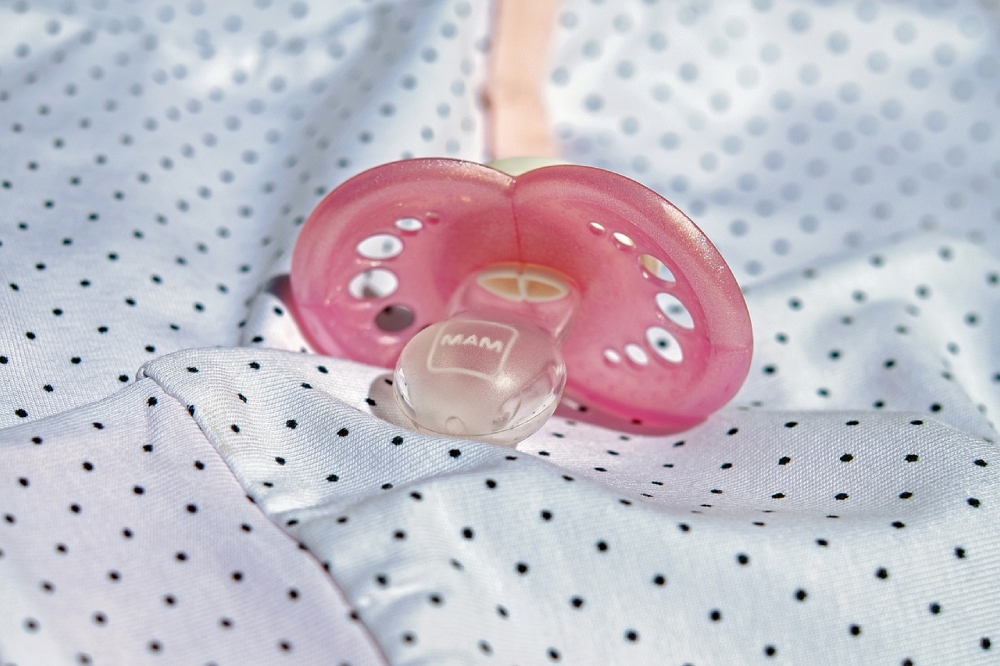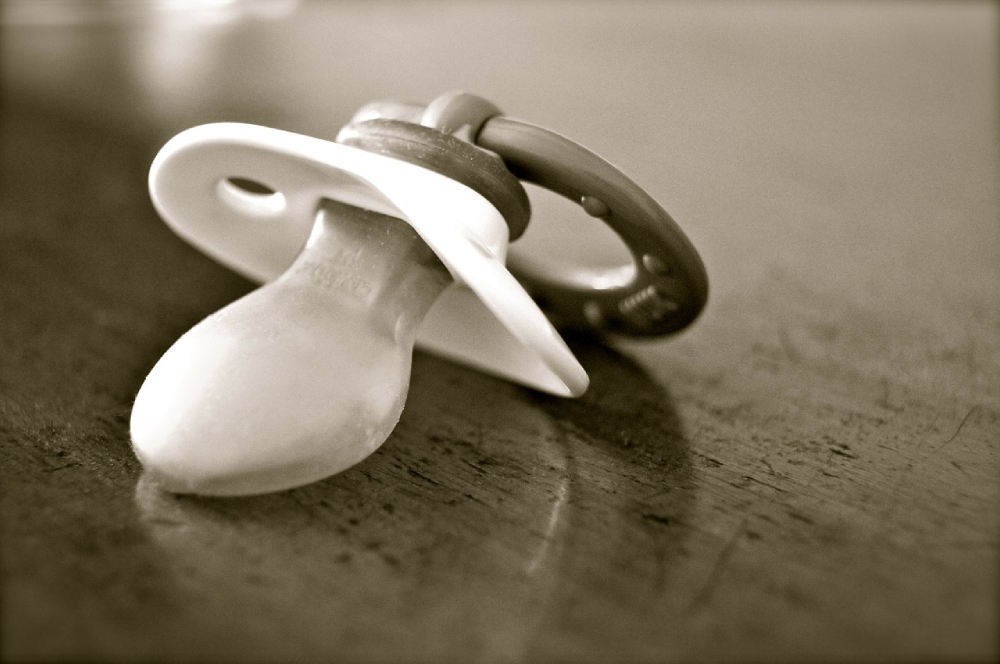Ditching the Dummy - When is the best age?

The changing role of the dummy
Dummies (pacifiers, soothers) are given to young babies so that they can feel secure and also so that they can learn how to ‘self settle’ rather than rely on a parent rocking them to sleep. As your baby develops, their reliance on their dummy changes. The first change occurs when they are 4/5 months old and many specialists believe that this is a good time to remove your baby’s dummy and to replace it with a blanket or a small cuddly toy to comfort them. Certainly at this age, your baby will quickly forget about their dummy, so this is a good time.If this moment comes and goes it will be unlikely that your child will part company with their dummy easily unless they personally decide that they do not want the dummy anymore – some smart toddlers throw their dummies in the bin! If you have missed the 4/5 month opportunity to part with their dummy, as they get older, you baby will become more reliant on their dummy to make them feel secure and not give it up easily.

As early as you can, encourage your child to only use their dummy when they go to bed and not to use it during the day. After a couple of days of grumbles, most children accept these house rules – especially if they are distracted when they ask for their dummy. It is important that your child uses their dummy as little as possible because with it in their mouth, they are less likely to babble and their speech development could well be delayed.
As your baby grows older, they will start to miss their dummy if it falls out as they sleep. To avoid having broken nights because you need to retrieve their dummy, make sure there are several spare dummies scattered near your child’s head. It can be useful to use a night light so that your child can just see to locate their dummy more easily.
Two years is a good age!
The best age to part with the dummy is around two years of age – providing there is nothing major happening in your child’s life such as a house move or arrival of a new brother or sister. You need to choose a period when your child is relaxed and settled as you want saying ‘goodbye’ to their dummy to be as stress free as possible. By this stage, your child should only be using their dummy at night and certainly should not be using it during the day when they have the chance to practise all their lovely new words.
How to successfully say goodbye to the dummy
The best plan is to aim for a special day and tell your child that Father Christmas/ Easter bunny or the good fairy will be coming to collect the dummies. Mention the fact that your child’s dummy will be going on the chosen day and that morning, get them to help you to wrap them up in a special little package. Place the package together somewhere in the garden and then distract your child with some fun activities. A friend of mine tied the package to a helium balloon which worked well and there was certainly no going back!That evening, when your child is getting ready for bed, they will comment on not having their dummy and wanting it. Be strong and resolute and explain calmly that the dummy(dummies) have gone for ever and pick together a favourite toy that your child can take to bed. It is likely that for the first few bedtimes, your child will lament the departure of their dummy, but after that it should be forgotten. To make life easier, ensure that your child is really tired at bedtime so that they are already snoozing whilst you read their bedtime story.

Why two years is a good age
There are a number of good reasons to get your child ‘dummy free’ at two years of age. The most important one is that if they continue to use their dummy nightly, by the age of three, they could be one of the 60% of children who have developed speech problems because of using a dummy.Dentists will also tell you that by the age of three, the continual use of a dummy can start to cause serious dental problems.
Getting your child to say ‘goodbye’ to their dummy is not easy, but with good planning and plenty of ideas to distract them and a strong resolve on your part, you will be successful and instead of running around hunting for their dummy, you will be looking for that cute little cuddly toy that has gone walkabout!
Chrissie x

